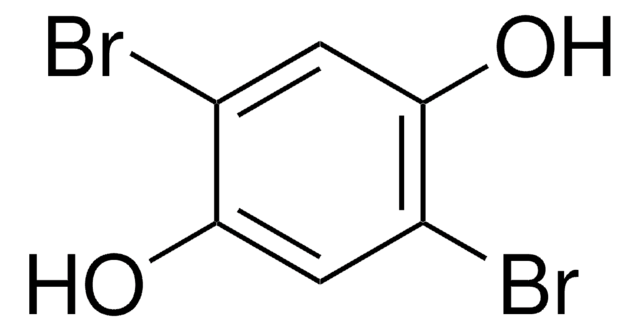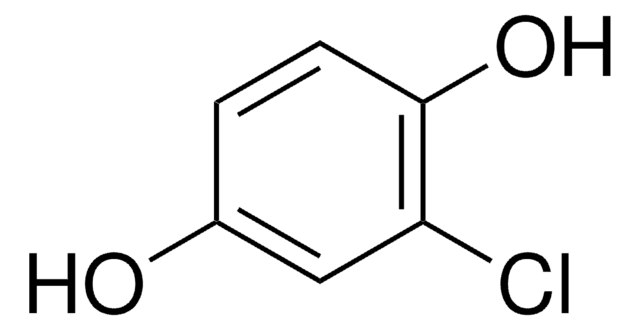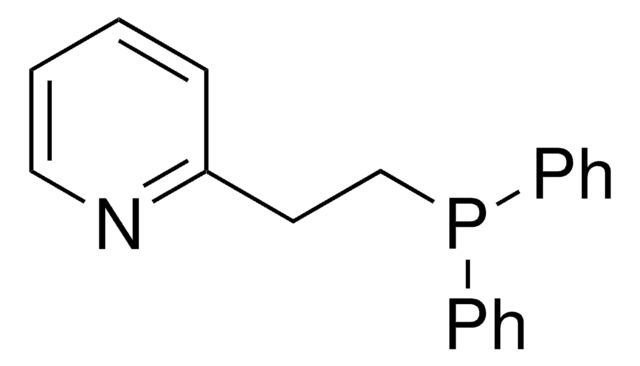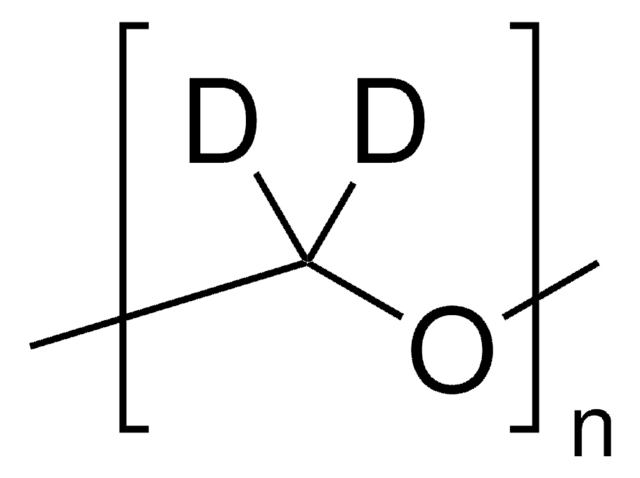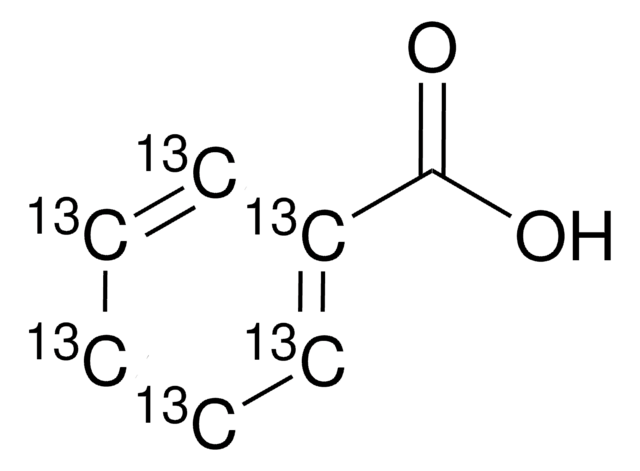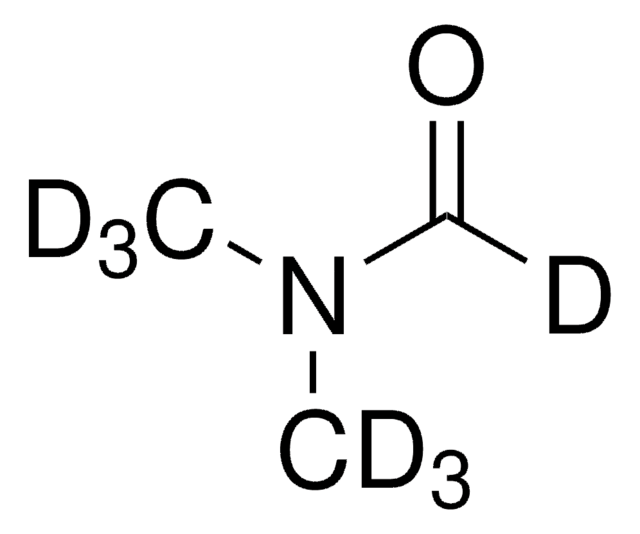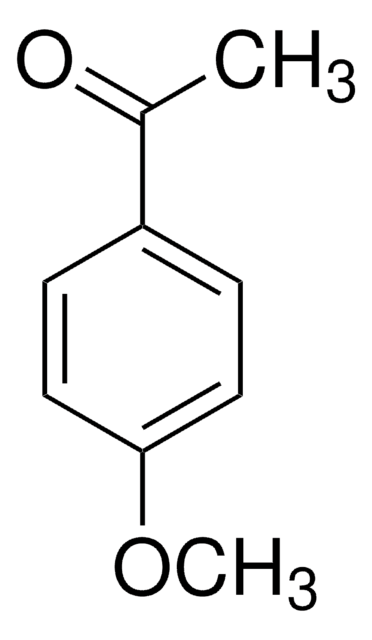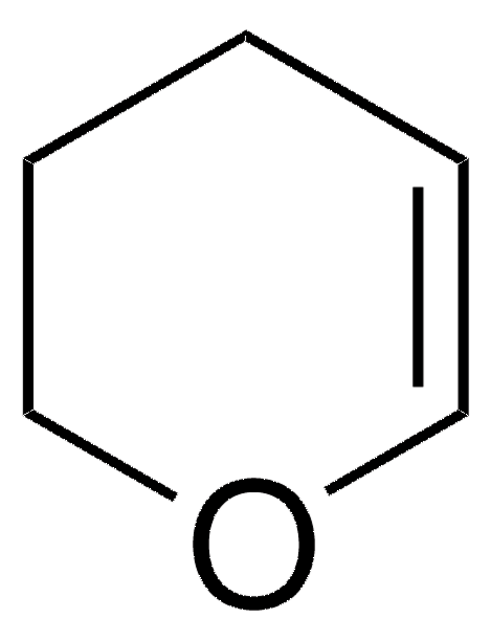167134
Bromohydroquinone
97%
Autenticatiper visualizzare i prezzi riservati alla tua organizzazione & contrattuali
About This Item
Formula condensata:
BrC6H3(OH)2
Numero CAS:
Peso molecolare:
189.01
Numero CE:
Numero MDL:
Codice UNSPSC:
12352100
ID PubChem:
NACRES:
NA.22
Saggio:
97%
Prodotti consigliati
Saggio
97%
Punto di fusione
112-116 °C (lit.)
Gruppo funzionale
bromo
Stringa SMILE
Oc1ccc(O)c(Br)c1
InChI
1S/C6H5BrO2/c7-5-3-4(8)1-2-6(5)9/h1-3,8-9H
REFDOIWRJDGBHY-UHFFFAOYSA-N
Categorie correlate
Applicazioni
Bromohydroquinone was used in the synthesis of Π-conjugated polymers composed of alkyl carbazole/dialkoxyphenylene and squaraine units via Sonogashira cross-coupling reactions. It was used in the preparation of 2-bromobenzoquinone.
Avvertenze
Warning
Indicazioni di pericolo
Consigli di prudenza
Classi di pericolo
Eye Irrit. 2 - Skin Irrit. 2 - STOT SE 3
Organi bersaglio
Respiratory system
Codice della classe di stoccaggio
11 - Combustible Solids
Classe di pericolosità dell'acqua (WGK)
WGK 3
Punto d’infiammabilità (°F)
Not applicable
Punto d’infiammabilità (°C)
Not applicable
Dispositivi di protezione individuale
dust mask type N95 (US), Eyeshields, Gloves
Scegli una delle versioni più recenti:
Possiedi già questo prodotto?
I documenti relativi ai prodotti acquistati recentemente sono disponibili nell’Archivio dei documenti.
I clienti hanno visto anche
T J Monks et al.
Molecular pharmacology, 34(1), 15-22 (1988-07-01)
The formation of potentially reactive thiols has been postulated to play a role in the nephrotoxicity caused by a number of glutathione and/or cysteine conjugates. However, the inherent reactivity of such compounds has precluded both their identification in biological systems
T J Monks et al.
Drug metabolism and disposition: the biological fate of chemicals, 13(5), 553-559 (1985-09-01)
Incubation of either o-bromophenol or 2-bromohydroquinone with rat liver microsomes and 0.25 mM 35S-glutathione (GSH) gave rise to several isomeric 35S-GSH conjugates. A mixture of these isomeric GSH conjugates was prepared chemically and two were purified by HPLC; 1H-NMR spectroscopy
R G Schnellmann
Toxicology and applied pharmacology, 99(1), 11-18 (1989-06-01)
2-Bromohydroquinone (BHQ) plays an important role in bromobenzene-induced nephrotoxicity and is a model toxic hydroquinone. Since BHQ has a quinone nucleus and various quinones have been shown to produce cytotoxicity via oxidative stress, the goal of this study was to
G W Miller et al.
Toxicology and applied pharmacology, 125(2), 192-197 (1994-04-01)
We have previously shown that strychnine mimics the cytoprotective properties of glycine in renal proximal tubule (RPT) suspensions exposed to antimycin A (AA). The aims of this study were to determine whether the cytoprotective properties of strychnine applied to various
S S Lau et al.
Biochemical and biophysical research communications, 152(1), 223-230 (1988-04-15)
2-Bromo-(diglutathion-Syl)hydroquinone (2-Br-[diGSyl]HQ) is a more potent nephrotoxicant than any of three mono-substituted isomers. The reason for this differential toxicity is unknown. We now report that the rate of uptake of 2-Br-(diGSyl)HQ, 2-Br-3-(GSyl)HQ, 2-Br-5-(GSyl)-HQ and 2-Br-6(GSyl)HQ by kidney slices was 2.4
Il team dei nostri ricercatori vanta grande esperienza in tutte le aree della ricerca quali Life Science, scienza dei materiali, sintesi chimica, cromatografia, discipline analitiche, ecc..
Contatta l'Assistenza Tecnica.